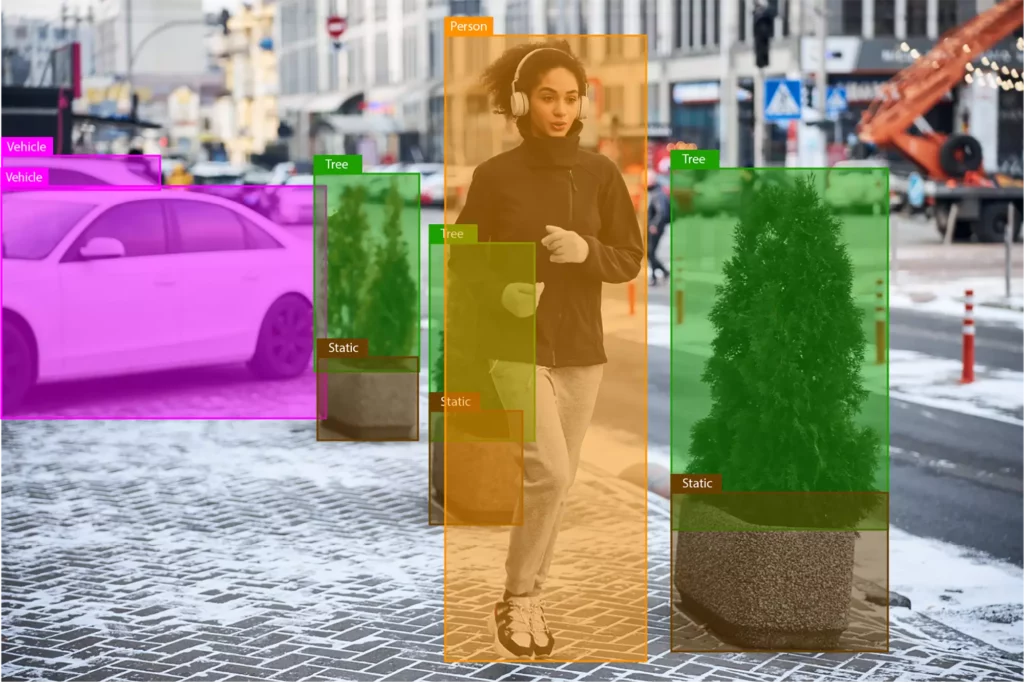Industry Knowledge
Data Tagging Companies: Why They’re Increasing In Demand
An uptick in AI application and adoption is shaping the growing demand for data tagging companies. But why is there a growing need for data tagging services?
Artificial Intelligence (AI) is everywhere, even in places you would never expect. From powering autonomous vehicles to virtual assistants on your phone, the accelerated use of AI has shaped how we use technology in these modern times.
Just like any other systems and solutions today, AI is only possible with data—tons of it. This is where data tagging companies comes in. In fact, a report by Grand View Research projected that the market for data labeling services will grow to $38.1 billion by 2028.1
In this article, we will discuss data tagging and the importance of data tagging companies in detail.
What are Data Tagging Companies?
The goal of data tagging companies are training an AI or machine learning (ML) model is to create an intelligent, self-aware machine that can accurately, efficiently, and effectively replicate human skills and behaviors. This training requires processing tens of thousands—or even millions—of raw data, such as videos, images, text, and audio, in a way that machines can understand and memorize. Data tagging is one of these processes but it can take up a lot of time, manpower, and resources. To help manage costs and increase the success of AI projects, industries turn to experienced data tagging companies to train ML models.
You might have encountered a similar-sounding term known as “data annotation”. They are related and sometimes used interchangeably. Here’s a quick explanation:
- Data annotation is the process of labeling data so machines can recognize and memorize them.
- Data tagging is the process of attaching tags or keywords to the different types of raw data (in the form of video, image, text, or audio) to make it easier for the machine learning model to learn from.

Data tagging services are commonly used to build computer vision or natural language processing. For example, when building an image recognition model, there’s a need to tag the given image data with relevant labels such as “car,” “tree,” “house,” and so on. The most reliable data tagging companies offer extensive data tagging training for their human annotators to ensure the accuracy and quality of their labels.
3 Major Data Tagging Challenges All Industries Face
AI is full of invaluable opportunities that industries can’t afford to miss. More and more businesses have started deploying their own AI initiatives—from automotive to retail and entertainment to healthcare. However, around 81% of these companies underestimate the AI training process and have admitted to finding data tagging more difficult than expected.
Here are 3 of the most common challenges industries face in the data tagging process:
1. The data tagging process demands a lot of time and resources
It can take millions of accurately labeled data points to effectively train an ML model. The volume of data demands a significant amount of time and resources, with the data tagging process alone taking up almost 80% of the AI project time.2 Failure to prepare or strategize for this phase can set a project back significantly and ultimately cost more.
Consulting with data tagging companies can substantially ease this challenge as they already have the tools, workforce, and resources any AI project and scale may require.
2. The risk of creating inconsistent tags in the data tagging process
In the data tagging process, several annotators must label the same data to increase the accuracy of each tag. However, this also can result in inconsistencies as each annotator may have varying knowledge, skill, and expertise levels that influence their tagging decision. Inconsistent data labels could be the effect of something as simple as a difference in judgment or human error, both of which are inevitable given the volume of data one annotator works within a day.
Project leads must still find a way to address these inconsistencies before it leads to further errors or consequences. The best data tagging companies will have best practices to mitigate and minimize such risk successfully.
3. Some data tagging projects require a specific team of annotators.
Depending on the use case or domain, the data tagging process may require experienced annotators for specific domains or industries. For example, suppose a healthcare company decided to build an ML model to detect harmful bacteria like E. Coli in blood samples. In that case, an annotator untrained in that particular subject won’t be able to tag any data correctly. In cases like this, outsourcing data tagging services or crowdsourcing data labels from experts is easier and wiser.
The Increasing Demand for Data Tagging Companies
AI and ML tools are revolutionizing how business is done across all industries: they can perform in-depth analyses, forecast trends, and make human decisions at scale. The key driving factor in making all of that a success is a data that’s training those algorithms. Thus, the need for data tagging services drives the significant demand for data tagging companies.
The cost of training ML models with poor-quality data is high and has cost some companies annual losses of up to USD 15 million.3 To avoid loss, companies find it easier to partner with data annotating companies as they have the best approach to providing secure, accurate, and high-quality data.
Some more advantages of outsourcing data tagging services include:
- Reducing the burden on in-house teams who can focus more on core functions such as research, development, and analysis.
- Eliminating the need to recruit staff members, train them, and invest in data annotation tools.
- Getting annotation projects done faster and within a reasonable budget.
- Receiving quick turnaround and high accuracy no matter how complex the project is.
The Future of Data Tagging Companies
With the dynamic shifts in artificial intelligence and the growing demand for high-quality data, data tagging companies are poised to maintain their significance in the future. Several emerging trends are expected to influence the demand for these companies:
- As machine learning advances, AI models will require more complex datasets for training, creating a heightened demand for expert data annotators who can provide accurate and intricate annotations.
- Multimodal data annotation will become an industry norm, combining diverse data formats such as images, text, video, etc., to develop sophisticated and comprehensive AI models capable of processing various data types.
- Data tagging companies will adopt automated labeling processes alongside human-in-the-loop validation, ensuring the precision and consistency of annotations.
- Domain-specific expertise especially in fields such as healthcare, finance, autonomous vehicles etc. will become increasingly crucial for data tagging companies to cater effectively to industry-specific requirements.
Data Tagging Services From TaskUs
What do you need to consider in choosing the right data tagging companies? Dubbed by the Everest Group as World’s Fastest Growing Business Process (Outsourcing) Service Provider, TaskUs provides world-class data tagging services for growth-focused and disruptive companies. We have powered and supported over 100 client partners in human-annotated training data for more than 10 years.
One of our clients, a leading global social media and technology company, turned to Us to support data labeling, tagging, and audio transcription for their voice assistant. Throughout our partnership, we have delivered Ridiculously Good results that have proven the impact of our data tagging tools, expertise, and highly -skilled team of annotators:
- 10 million items tagged per week;
- 91.7% average accuracy rate; and
- New Automated Speech Recognition lines of business for the client in the next two years.
- 1^Data Labeling Solution and Services Market Worth $38.11 Billion by 2028: Grand View Research, Inc.
- 2^Survey: 96% of Enterprises Encounter Training Data Quality and Labeling Challenges in Machine Learning Projects
- 3^How to Stop Data Quality Undermining Your Business
References

We exist to empower people to deliver Ridiculously Good innovation to the world’s best companies.
Useful Links







